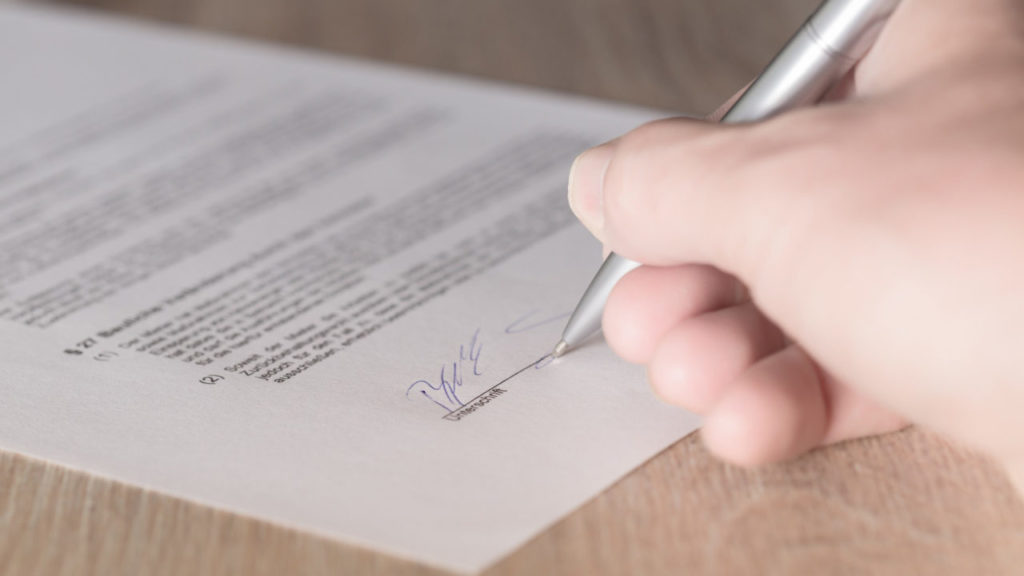When you sign the purchase agreement, you and the other party are giving your formal consent to the deal. The seller hands over the keys to the home, and the buyer (or the bank that is financing the transaction with a mortgage loan) hands over the money. So, this is the point of no return.

That is why it is best to observe all the formalities you can, and bear in mind that:
The agreement can be concluded in a private document, without a notary, just between the seller and the buyer. You can only do this when the sale is not being financed with a mortgage loan, because a mortgage loan will always require a notarial deed and registration in the Property Registry. That is why housing purchases are generally formalised in a notarial deed. Nevertheless, when buying an as-yet unbuilt home, private contracts are generally used to formalise the delivery of sums paid on account and the obligation to build and deliver the home.
It is important for you to know that when a private document has been made, either of the parties can demand to have the document notarised. If the other party refuses, the first party can call for the courts to step in. Remember that if you want to register your purchase in the Property Registry, you will always have to have a notarial deed.
The general rule is that housing purchase agreements are concluded in a notarial deed, which is a public document authorised by a notary, who writes down the wishes of the parties, judges their identity and legal capacity, draws up the document according to the parties’ instructions or written draft, making sure it fits the legal requisites, and cautions the parties about the obligations each must discharge as a result of making the agreement.
Having the notary do this will give the document’s contents authenticity, which means that whatever the buyer, the seller and lending bank (if any) declare to the notary will be set down in the deed, and the deed will serve as proof to all of the fact of the sale and the date of the sale, and neither of the parties can deny to the other that he or she made the statements recorded in the deed. Notarisation of the deed is tantamount to delivery of the home, and generally the price is handed over to the seller in the notary’s presence.
Notarisation of the deed is tantamount to delivery of the home, and generally the price is handed over to the seller in the notary’s presence.
That is why, before authorising the deed, the notary will ask the property registrar for an uncertified note attesting to the ownership of and burdens on the property, and immediately after the deed is signed, if the parties so request, the notary will forward a message to the Property Registry stating that the deed has been authorised, thus preventing -now that the agreement has been concluded- the buyer from being affected by any injunctions or burdens aimed at the seller that reach the Registry before the deed of sale does.
It is important for you to know that the choice of the notary is supposed to be made by the person who is going to pay the notary’s fees. If the seller is a business owner and the agreement is concluded in the form of a standard contract (as when you buy from a promoter or you arrange for a mortgage loan), the buyer gets to choose the notary.
Lastly, we must point out that no matter whether the agreement is private or public (notarised), the seller is responsible for all hidden or latent defects in the home, even if he or she is not aware of them. If any such defects exist, you as the buyer can opt out of the agreement and receive payment for your expenses, or you can get a proportional discount off the price, set by an expert. In addition, the promoter, the builder and the chief engineer for the building are severally liable to buyers and purchasing third parties for damage caused by structural defects in construction (liability good for ten years), damage stemming from defects that affect the inhabitability of the building (liability good for three years), and damage caused by defects in finishing work (liability good for one year). They are also obliged to take the proper insurance policies.
Source. How to buy a home in Spain


